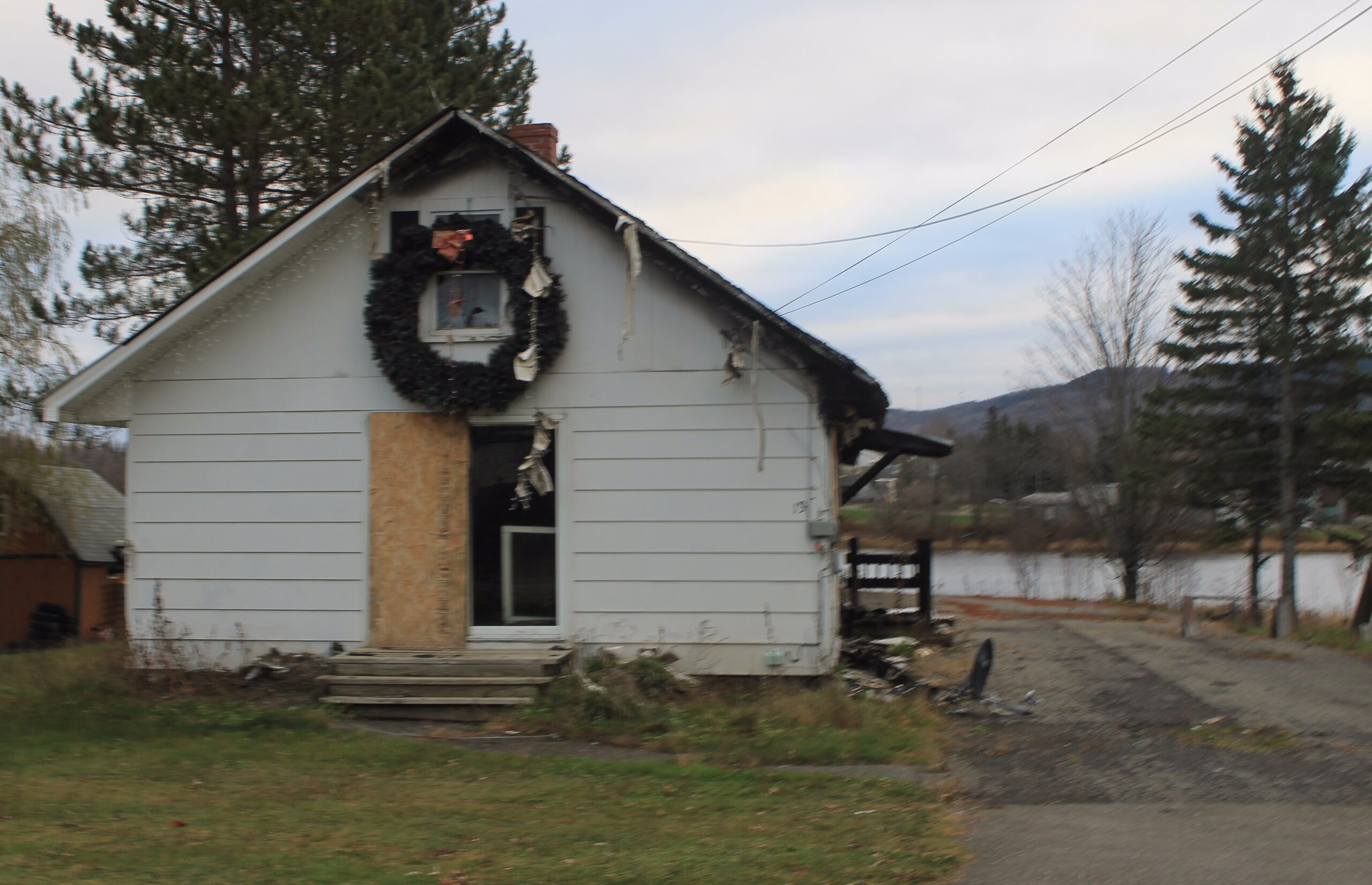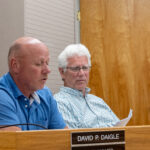Like most of rural Maine, Mars Hill has its share of homes that could alternatively be considered fixer-uppers or tear-it-downers.
Ernest York, a Mars Hill native and retired long haul trucker, said he thinks the town should do more to get those properties cleaned up, including a roadside property with used equipment and antique autos next to the Pierce Cemetery that York contends is unsightly and akin to a junkyard.
“It just isn’t very appealing for people who take their loved ones or friends to a cemetery,” York said, adding that some of his friends are buried there.
York, who lives at the corner of Silver and Main streets, said that Mars Hill’s zoning system prohibits locating an automobile junkyard within 300 feet of a cemetery. Separately, he also thinks the town’s 2015 property maintenance ordinance isn’t being enforced.
“There are several places in Mars Hill that need attention,” he said of the other properties. “But it seems the Town Council doesn’t want to do anything because it costs money.”
York brought his concerns to the Mars Hill Town Council about the proximity of the used autos and equipment, owned by M.E. Grass & Sons Trucking and located across from the business’ truck repair shop.
The councilors ended up taking no action on his complaint, said Mars Hill town manager David Cyr. The town — as well as state officials — determined that the property is not an auto graveyard or junkyard, Cyr said.
Todd Grass, whose family runs the trucking company, said that he was surprised by York’s complaint about the property next to the cemetery. He said they keep the property tidy and have helped maintain the Pierce Cemetery, planting new trees along the border, cleaning up brush and in one year mowing the lawn when the contractor failed to do so.
Grass, who is a town councillor, emphasized that state officials have determined the lot with used autos and equipment is not a junk yard. He also said that he thinks York’s complaint stems from a recent disagreement over whether the town should spend $1.6 million on a new town garage and sand shed — a project that York supported. Grass and several other councillors voted against the full $1.6 million project, and the town ended up building just the sand and salt shed for $400,000.
The complaint about the property next to the cemetery seems “vindictive,” Grass said.
York said he supported the $1.6 million garage and sand shed project, but is concerned about the other issues regardless.
As for York’s other concerns about dilapidated homes and derelict properties, Cyr said he and other town officials have made efforts under the 2015 property maintenance ordinance, but are limited in what they can do in part because of the state’s legal process for condemning buildings.
“The intent of the ordinance was to give us some method with which to utilize to force the owners of the properties to clean them up,” Cyr said. “Those properties create a drag on the surrounding neighborhood as far as values and appearances.”
The ordinance has multiple provisions aimed at addressing unsightly properties, including the presence of unregistered vehicles within the town’s downtown residential zones, and it uses the building standards in the International Property Maintenance Code, Cyr said.
Cyr said the town has identified 28 properties that fall under the ordinance and the code enforcement officer has spoken with owners of three of those properties. But the town has not taken any legal actions against them largely because of the lengthy, costly process of having a building condemned under state criminal code.
“Condemnation means judges and lawyers,” Cyr said. “We were hoping to do something that would not have required spending money on legal fees.”
- The property next to the Pierce Cemetery in Mars Hill with antique autos and equipment for sale. (Anthony Brino)
Properties and homes fall into disrepair for different reasons, but often times their decline is related to money, Cyr said.
“People move out. The cost of maintaining those homes becomes such that they can’t afford to. People make choices between food, rent, medication, and defer on maintenance year after year. Before you know it, the cost to maintain or upgrade that house is something that people can’t afford.”
Three abandoned properties in Mars Hill that were acquired by the town for nonpayment of taxes have been resolved thanks to neighbors, Cyr said. The neighboring homeowners purchased the properties at the price of back-taxes and paid for the buildings to be demolished.
Removing old, unfixable homes can be costly, said Cyr, who’s also a civil engineer. Depending on whether there is asbestos insulation that requires special care or if the building’s remains will be hauled off, the cost of removal can range from $5,000 to $10,000, Cyr said.
“It’s an issue all of us face,” Cyr said of derelict homes in northern Maine. “I’m not sure anyone has quite the magic bullet to address this. It took us years to get here and it’s not going to happen overnight.”
York remembers a time when Mars Hill had thriving local retailers, no abandoned homes, and a roughly 30 percent larger population. He said he thinks that the long-term impact of derelict properties is not good for the community.
“I’ve been everywhere and seen everything,” he said recalling his 58 years in trucking. “I’ve been through towns that I wouldn’t want to go back to and I’ve been through places that I would like to see again.”
“I’ve always tried to keep things neat around my place and I think other people should do the same,” York said.









